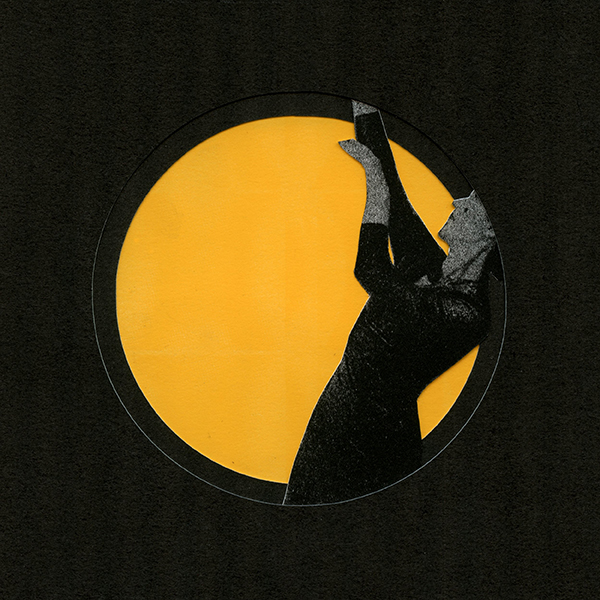WHO ELSE HAS LIVED IN THIS ROOM?
A CONVERSATION WITH LUCY KRUGER
Lucy Kruger & The Lost Boys made their debut in 2015 with the album Summer’s Not That Simple. At the time Kruger was in her home country of South Africa, but in 2018 she moved to Berlin and from Berlin as a homebase has released a further five albums, including an ambitious and well-received trilogy (Sleeping Tapes For Some Girls, Sleeping Tapes Sessions, Transit Tapes (For Women Who Move Furniture Around)). Kruger has always been one to push the boundaries of music, whatever genre she wants to experiment with. The same can be said for her new album, A Human Home. I had the chance to speak with her via Zoom during her recent tour of The United States.
The song “Rooms” and the album are somewhat of a departure for Lucy Kruger &The Lost Boys. As an artist, her music has never been conventional, but with A Human Home, she tried something very different.
“I asked friends and family to send me some ideas or thoughts or words of their experience of isolation. I wanted to make songs built around that. But I had never really worked with others, my lyrics are very essential to my writing. So, it didn’t work out how I imagined. What I ended up doing was not taking the things people sent to me intentionally, but the only motive for myself was to take thoughts I got from a friend and to just play with that. And to not pass any judgement. It was just kind of sketching, I guess. It was a creative way to spend time with friends.”
But for Kruger, it is not that easy, in fact, quite the opposite. “I have spent a lot of my life trying to find independence and find a feeling of freedom. The older I get, the more complicated that feeling is,” she noted while we talked. “I think that freedom doesn’t mean to be alone. It is quite frustrating and quite amazing to figure out how intimate and interdependent everything is and this album was a bit of…I guess I wanted to find my own voice but also understand how it is deeply intertwined with others. And to see how that could be literally done. Like, how does the person you love indent into your work?”
The song, and first single from the album, “Rooms”, fits into the concept of the album. Kruger explained how the song came about and the thoughts she is trying to express in the song. “It’s about many things, really, The line “Don’t centre yourself around the person you are with”, it is this kind of push and pull between really needing somebody and struggling with the idea of dependency. It is a theme I have worked on throughout my work. And how can all these things be possible at the same time. Because I was in my room so much, I was in conversation with the physical space, because of the contemplation. You know, ‘who else has lived in this room, and what else has it seen?’ I also had thoughts of ‘how everything you touched is shaped around everything else, it is inescapable. It is a bit chaotic. It is kind of harmonious but also a bit strange.”
The video for the song is also quite unique and is a work of art. It is an unusual expression of the song and stands out with the current videos being released by other artists.
“I work with a woman named Julia Schimautz. She has a studio in Berlin named Don’t Try Anything New, and I worked with her on my last record as well. She is quite exceptional. What this is, is that we filmed some of me moving. She prints every frame and then cuts it out manually and scans them all back in. That idea is that it is supposed to have a puppet show feeling. It follows so many lines of meaning that it became something else at some point. Slightly more performative and me playing with identity. The overarching theme of playing with yourself and the people you love.”
Unlike her previous albums, Kruger recorded A Human Home, for the most part, alone in her bedroom, not using a studio, as she has in the past. “It made me feel quite vulnerable. This is, by far, the most DIY record I have done. Maybe there is something about recording in a bedroom that lends itself to intimacy because you are capturing something that is not in the sterile environment of a studio” Not only that, but it was actually recorded before her prior release, 2023’s Heaving. “Heaving was recorded after this one,” Kruger noted. “These songs were made in the moment, because it was my first venture into digital production, they weren’t made with me repeating something on guitar over and over. The process was on the computer.”
In many ways, Heaving happened because of A Human Home. Kruger noted that one album really led to the next.
“ A Human Home was kind of a warm up to Heaving. It gave me the chance to explore and experiment and break out from traditional singer-songwriter roots in which I come from, which relies on guitar. I wanted A Human Home to be sort of a playground, try something new, and Heaving was made after that. I made it in a similar way, to be less afraid and just to experiment. The computer is so amazing. The problem with just writing with a guitar is that I can play the guitar just fine, but I am not extremely comfortable on it, so there is a limit as to what I can compose and what I can do if I am dependent on playing and singing. So, I was able to record and with Heaving, I could make a loop and improvise on top of it in a much more free way. Then I could patch things together. It gives you a creative way that supersedes your skill set. It is quite amazing, you know.”
Thankfully, Kruger decided to release A Human Home, because there was a chance it would have remained an unreleased gem. “I only decided last year that I wanted to share it because I felt like…I still don’t know what it is. I was saying to my guitarist this morning, ‘I have no idea how it reads,’ but I feel it was quite personal and relatable. It was a very intimate and abstract documentation of that time.”
Lucy Kruger is an artist who is very self-aware, and this has had the opportunity to tune into herself and discover who she is as an artist.
“I had the time, and I guess I used it. I don’t drink, which probably helps, I also have had access to funding over the past few years, which makes a huge difference. I’m probably not as affectionate as I could be, but I am making peace with the fact that my process depends upon not being too precious. Some artists release three albums in their lifetime, while other artists make and release. It doesn’t help me to overthink too much. I need to make and then my compulsion is to share it. I try to make peace with how it makes sense to me.”











